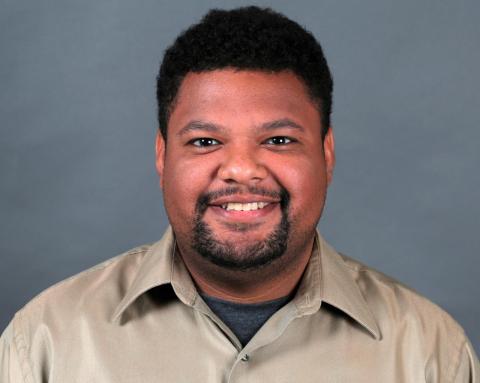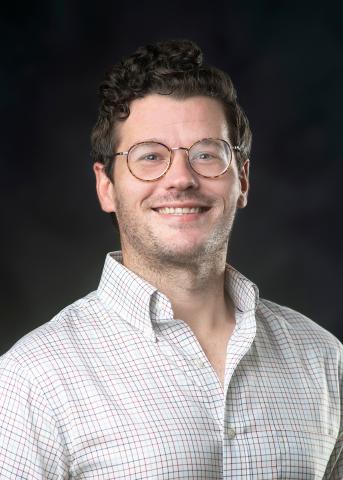Leadership
Dr. Jordan Lynton Cox, Director

Dr. Jordan Lynton Cox is an Assistant Professor of Anthropology at Mississippi State University in the Department of Anthropology and Middle Eastern Cultures (AMEC) and the director of the Brush Arbor Community-Engaged Field Program. She specializes in cultural anthropology focusing on race and identity, post-colonial theory, critical geographic information systems analysis, and critical pedagogy. Her primary research explores how legacies of colonialism, Afro-Asian intimacies, and the complex histories of racialization in black majority Caribbean contexts shape the contours of PRC (People’s Republic of China) expansion.
Dr. Lynton Cox is passionate about pedagogy and community engagement. In AY 2022-23, she was a Fellow at the MSU Center for Community Engaged Learning. Additionally, she has built the Story Mapping and SocioSpatial Collaboratory as a space for interdisciplinary scholars to learn how to integrate spatial data and visualize their research. As a graduate student at Indiana University, she developed several community groups, including a critical pedagogy learning community to support graduate students from underrepresented groups. Along with her colleagues, Dr. Lynton Cox published “Transgressive learning communities: Transformative spaces for underprivileged, underserved, and historically underrepresented graduate students at their institutions” as a transgressive teaching and learning model that other scholars could implement to expand the usage of critical race pedagogy at their institutions.
Dr. Jesse Goliath

Dr. Jesse R. Goliath is an Assistant Professor of Biological Anthropology specializing in skeletal biology and its applications to forensic anthropology, microscopy, functional morphology, bioarchaeology, skeletal development, and bone biomechanics. Dr. Goliath's research focuses on the relationship between developmental changes in bone architecture and the mechanical loads experienced during life. He applies bone functional adaptation theory to explore age and sex-related changes in bone quantity and quality. With field recovery experiences in North America, Europe, and Southeast Asia, Dr. Goliath has excavated burials both domestically and abroad. He has also worked as a consulting Forensic Anthropologist for various city, state, and government agencies. His contributions include the development of histological age estimation techniques and regression equation models for forensic pathology and anthropology casework.
Dr. Goliath has published forensic osteology research in the journals of Forensic Science International and the Journal of Forensic Sciences and has done extensive forensic casework for city, state, and federal agencies. He has served as lead instructor for forensic science field schools and has case experience recovering missing service members and civilians. He currently serves as a consulting Forensic Anthropologist for the state of Mississippi and is the Principal Investigator and Director of the Mississippi Repository for Missing and Unidentified Persons Project. In this capacity, he works with law enforcement, medico-legal personnel, families of missing relatives, and local social service agencies. As a forensic anthropologist, he is in the unique position of explaining science to laypeople and helping families deal with the trauma of death, especially those who still have missing family members or unresolved cases.
Dr. Shawn Lambert

Dr. Shawn Lambert is a southeastern archaeologist specializing in the Early Mississippian period (ca. A.D. 800 – 1200) and the Pre- and Post-Removal Native American period (ca. A.D. 1700 – 1860). His research focuses on remote sensing and the analysis of ceramics, including design style, trace elemental analysis, and iconography. Through these methods, he seeks to uncover detailed histories of community development, transformation, ritual integration, and movement, as well as interaction networks. His primary research area is the southeastern United States, with a specific focus on the Arkansas River Basin and Lower Mississippi Valley. He conducts field projects at notable sites such as the Spiro Mound site in eastern Oklahoma and other mound centers in the Trans- Mississippi South.
Shawn is dedicated to public archaeology and actively collaborates with descendant communities. He strives to make archaeology accessible to diverse audiences by incorporating 21st-century technologies such as 3D printing, laser-scanning, and virtual and augmented realities to bridge the past and present.
Dr. Lambert has funding from the National Science Foundation and other granting institutions supporting programs that diversify and decolonize archaeological practices, make archaeological field schools more inclusive, and work with many descendent communities to decolonize anthropological curriculum. His research includes public and community archaeology, indigenous archaeology, remote sensing technologies, and ancient ceramic research.